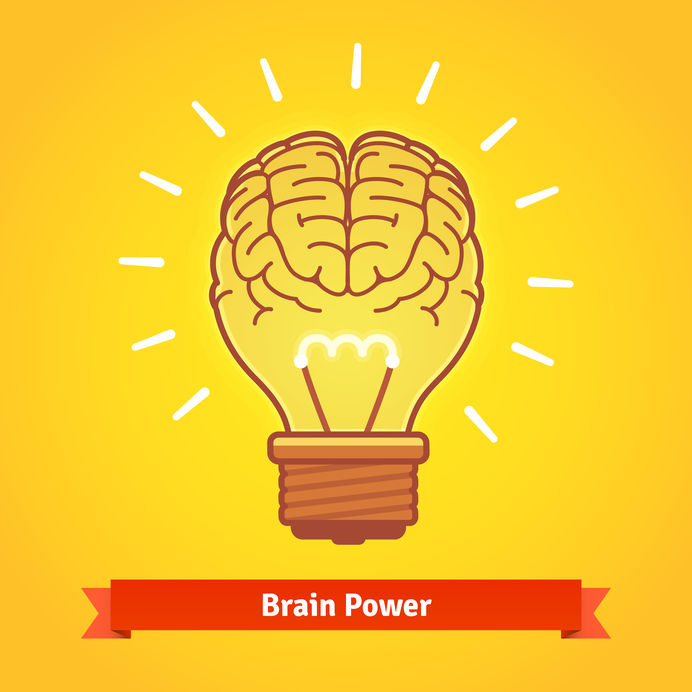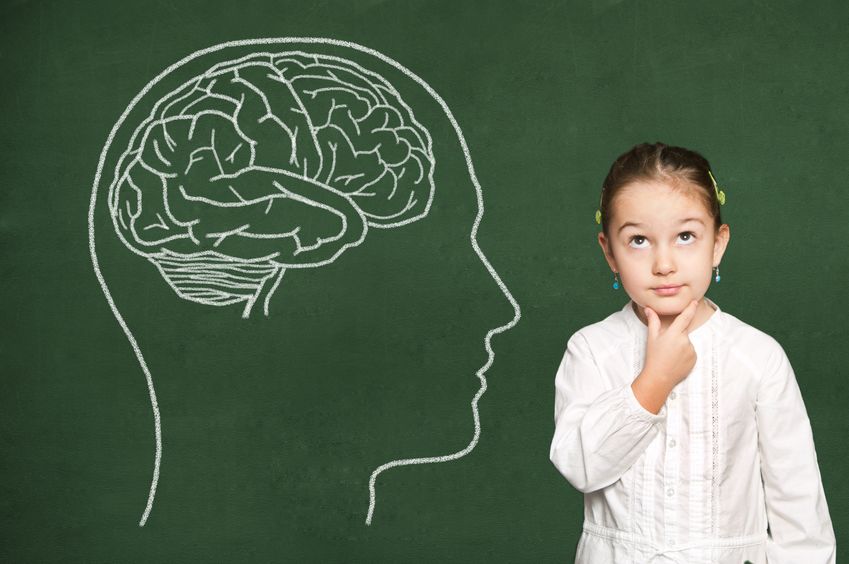Quiet the mind, and the soul will speak. – Ma Jaya Sati Bhagavati
Meditation has shown that regular practitioners can improve their daily lives in many ways with a 20-minute per day commitment.
It’s not just about finding peace or relaxation.
There are several psychological and cognitive benefits which develop over time.
It is possible to see these advantages developed quickly, as meditation changes the brain in 8 weeks for some practitioners
It is never too late to get started either.
Anyone can begin to experience these benefits when they commit to a routine that includes meditation.
Now, let’s try to answer the question: how does meditation affect the brain and improve its power?
#1. Stress Reduction
Meditation gives you the opportunity to clear away the information overload that occurs every day.
When there is too much data floating about, it can contribute to higher stress levels.
It’s like hitting the reset button for your brain.
This process helps to reduce negative emotions.
It can help to provide a unique perspective about a stressful problem so that a solution can be found.
By focusing on the present, self-awareness begins to increase.
It all works together so that stress reduction occurs because the brain develops the skills necessary to proactively stop it before it starts.
#2. Wellness
When an illness strikes, the brain tends to focus on either the past or the future.
This causes people to wonder if they could have done anything differently in the past to change their present moment.
It also makes people wonder what challenges the future will bring – or if there will even be a future to worry about.
Meditation provides a sense of wellness when dealing with a chronic disease.
It allows individuals to gently accept the limitations of their illness.
This helps them be able to start looking at what is possible in the present.
For those with a chronic illness, meditation practitioners found it easier to fall asleep, stay asleep longer, and have enhanced relaxation patterns compared to those who did not meditate regularly.
Meditation also provides individuals with a greater ability to manage their symptoms.
Several different conditions can be managed, including depression, asthma, high blood pressure, and chronic pain.
#3. Balance Restoration
Medical professionals categorize the human body into different systems in order for it to be effectively studied.
This has led to numerous opportunities to treat and cure disease.
It also means that there is an underlying intelligence which connects every cell of the body that is often neglected.
Meditation stops that neglect. This is why it is so effective.
If the human body experiences an imbalance, then the benefits of daily meditation can take a person beyond their thoughts.
The mind finds a place of calm, so the rest of the body becomes calmer.
With up to 80,000 thoughts per day, many have a brain that is struggling to stay balanced without even realizing it.
For those who suffer in the past or worry about the future, these are symptoms of an imbalance.
Meditation can help the brain function as intended, allowing each cell in the body to function as intended as well.
This script offers a self-guided opportunity to achieve balance.
#4. Grey Matter Growth
When people start a routine that includes mindfulness meditation, they give themselves an opportunity to grow their brains. Literally.
Brief periods of mindfulness meditation training have found that practitioners experience an increase in the amount of grey matter the brain contains.
The focus of growth is typically within the parietal lobe and the hippocampus.
The parietal lobe is located at the back of the brain. It is responsible for processing sensory information, including visual information, as well as processing language.
Every sensation experienced is processed by this part of the brain so that a single perception can be formed.
The hippocampus is located within the temporal lobe of the brain and helps to regulate emotions.
It is also one of the strongest contributors to the development of long-term memories.
Some even believe that the hippocampus helps with spatial navigation.
At the same time, the grey matter density in the right basolateral amygdala is reduced as the hippocampus density increases.
It is believed that this portion of the brain associates rewards or consequences to specific sensations.
Through meditation, the brain becomes more resistant to temptations that are emotionally-based.
Boredom eating, for example, could be potentially reduced with this fundamental change to the structure of the brain.
#5. Mood Regulation
Anxiety attacks are often caused by fearful thinking.
If that thinking can be controlled, then there will be an increased level of control over panic and fear.
This is what meditation is able to provide for the brain.
Meditation teaches people how to become a quiet observer of their thoughts.
It detaches the brain from the fearful thinking that can trigger a panic attack.
Instead of physically experiencing the anxiety, it becomes possible to look at the emotions, images, or thoughts of anxiety with an outside perspective.
Once an individual is able to step outside of those trigger thoughts, panic and anxiety are able to reduce over time.
People who meditate regularly become much more resistant to anxiety, fear, and panic – even acute forms of these thoughts and emotions.
#6. Focus

Meditation is able to improve cognition.
This is where the brain gets its power in the first place.
People who regularly meditate find an increased ability to complete tasks that require a high level of focus.
When there is a greater level of focus, the brain consumes fewer energy resources.
This allows the energy that normally would have been consumed to stay focused to be redistributed to the rest of the body.
Even a simple 5-minute guided meditation video can help to unlock better energy levels and more focus.
Brain activity during meditation doesn’t stop, as some might think. It is being redirected toward a specific task.
When an effort is made to step outside one’s thoughts or concentrate on breathing patterns, then the power of the brain can be unlocked.
#7. Resistance to Aging
No one is completely immune to the natural aging process.
When people meditate on a long-term basis, however, they can fight off the effects of aging more effectively than people who do not meditate.
Researchers at UCLA determined in a 2015 study that people who meditate for an average of 20 years have more gray matter volume throughout their entire brain compared to people of the same age who do not meditate at all.
Older long-term meditators still have brain volume loss compared to younger meditators, but the volume difference is much greater in those who do not meditate.
This shows how much plasticity the brain actually has.
Not only are there immediate structural changes that may occur in the brain in just 8 weeks or less, but there are also long-term plasticity changes that can help the brain fight to stay young.
#8. DMN Alterations
DMN stands for “Default Mode Network.” It is often referred to as the “monkey mind.”
When the DMN is active, the brain tends to create thoughts that are self-referential in nature.
People who experience moments when their mind tends to wander are experiencing an activation of the DMN.
Any time there isn’t a specific thought that is being considered, the DMN can activate.
It may also activate when there are difficult or painful emotions that are present.
Meditation can help to reduce the number of DMN activations an individual may experience.
It may also reduce the length of time the average DMN activation lasts.
This is because meditation can cause new neuropathways to form and these new connections allow people who meditate to consciously shut down a DMN activation when it is experienced.
#9. Resilience to Addiction
Meditation provides the brain with tools that help it to maintain a higher level of self-control.
For people who struggle with addiction, meditation can help to reduce or eliminate the mental effects that cause individuals to relapse.
This occurs because meditation decouples a craving state from the act that the addiction requires.
To use nicotine as an example, meditation separates the state of craving from the state of smoking cigarettes, cigars, or using chewing tobacco.
This separation allows the brain to recognize one act (the craving) doesn’t have to lead to the next act (smoking or chewing).
Meditation can also help people be able to stop a relapse from occurring after they have beaten an addiction.
#10. Creativity Enhancement
Meditation has been shown to be able to enhance numerous cognitive processes.
One of these processes happens to be the creativity that a brain is able to produce.
In studies that use the Alternate Use Task (AUT) as a metric to determine creativity, researchers have found that open-monitoring meditation can enhance creativity immediately.
Participants did not need to have any prior meditative experience in order to experience a boost in their creativity.
AUT is measured by asking an individual about the alternative uses they can think up for a common everyday object.
If a piece of copy paper were used as an example, alternative uses for it could include a “paper airplane” or “confetti.”
This is one unique benefit of how meditation affects the brain and allows it to unlock its power.
If there is a need to find creativity, the meditation is the key that can unlock the next great idea.
#11. Decision-Making
Many business executives are turning to meditation for one simple reason: it helps them be able to make better decisions.
Mindfulness meditation, Transcendental meditation, and other meditation formats help to provide the brain with a better neuropsychological performance within its decision-making centers.
In a 7-week program which focused on Goal Management Training and mindfulness meditation, the individuals who were meditating had significantly improved performance in their training compared to those who were not meditating.
An added benefit was also discovered.
The individuals who were dealing with polysubstance dependence either currently or in the recent past showed the greatest levels of decision-making improvement.
Polysubstance dependence is defined as being psychologically dependent on a combination of at least three substances in order to achieve an intoxicated state without a preference for a specific one.
An individual who relies on alcohol, painkillers and marijuana to achieve an intoxicated state would be considered as an individual with polysubstance dependence.
#12. Reduced Inflammation
Meditation creates a better level of communication between the portions of the brain that deal with stress and the areas that are related to peacefulness, focus, and calm.
Over time, this enhanced communication offers the opportunity to reduce the levels of unhealthy inflammation that an individual may be experiencing.
Regular meditation is not required in order to experience this unique benefit of meditation.
As reported by The New York Times, an intensive 3-day research study on 35 unemployed individuals showed that those who underwent mindfulness meditation in addition to physical exercises showed changes in the portion of the brain that deals with stress-related reactions.
Those who performed the physical exercises also reported feeling refreshed and able to withstand stress better, but did not show the structural changes within the brain.
After 16 weeks, the researchers followed up with both groups.
The individuals who had practiced meditation during an intensive 3-day period still showed lower levels of inflammation markers in their blood compared to those who did not meditate.
Most of the individuals were not meditating during the follow-up.
#13. Better Health
The regular practice of meditation naturally encourages a healthier lifestyle.
Many people experience food cravings during the day.
It’s not just boredom eating or sugar addiction that causes these cravings.
For some individuals, the smell of a hamburger makes them want to eat a hamburger.
Seeing a pizza on television makes them want to eat a pizza, even if they are not hungry at that time.
Dr. Jamie Zimmerman developed a form of meditation called STOP meditation that can help to control these unique cravings.
By understanding where the craving is coming from and what it means for the body, it becomes possible to stop it.
The brain is given the opportunity to reset and focus on putting good things into it.
There are a number of guided meditations that are available from Dr. Zimmerman for free right now as well.
This 10-minute guided meditation is a good example of how powerful her techniques happen to be.
Unlock the Power of the Brain Today Through Meditation

Meditation changes brain structure.
The effects of meditation on the body have been heavily researched and shown to be highly beneficial.
The benefits of meditation can be experienced in as little as 4 days for long-term benefits.
The short-term benefits of meditation, such as a greater focus or more creativity, can be experienced immediately.
Meditation might seem like it is boring or pointless, especially if an individual has numerous DMN activations occur throughout the day.
The effort, not the implementation, is the most important factor to consider.
The simple act of committing to the practice of meditation begins the process of allowing the brain to be able to unlock its power.
Anyone can meditate and experience these benefits.
Kids, adults, seniors… it is never too early or too late to begin meditating.
In just a few days, there may be less stress, more relaxation, and a greater level of peace.
How have the benefits of meditation changed your life for the better?
—————————————————————–
kasza © 123RF.com, Jesadaphorn Chaiinkeaw © 123RF.com, Maxim Popov © 123RF.com


